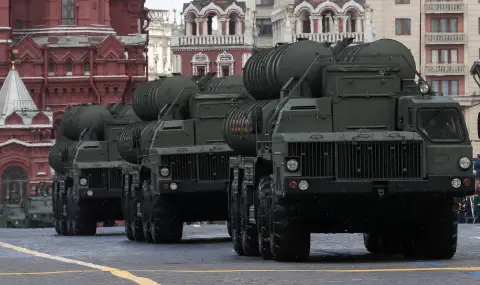Russian “unparalleled“ army constantly boasts that it has missiles that cannot be intercepted by Western systems. However, the war in Ukraine showed otherwise, military-political analyst Oleksandr Kovalenko writes for oboz.ua.
In the third year of the full-scale war in Ukraine, the Russians continue to threaten the entire world with nuclear weapons and believe that their threats still have some meaning and weight. And if we really assume that Russia will strike the NATO countries, what will be the result?
When we talk about Russian nuclear potential, we mean primarily the nuclear triad of the Russian Federation, capable of using the entire range of weapons with nuclear warheads. These are ground assets (mobile and stationary), aviation complexes (Tu-95MS, Tu-22M3 and Tu-160) and naval components (nuclear submarines).
If we consider the potential of all these components, it turns out that it is extremely low and sometimes even dangerous for Russia itself. In the 30 years of Russia's existence since the collapse of the USSR, most of the nuclear warheads and their carriers have not undergone proper regular maintenance and routine repair work. If we are talking about stationary silo launchers, mainly for intercontinental ballistic missiles (ICBMs), then two thirds of them on the territory of Russia have long been out of combat capability.
The situation with the aviation component is no better. The fleet of strategic bomber-missile carriers is extremely worn. The Russian airport tracking and monitoring system allows Western countries to assess all threats from Russian aviation. If we talk about the entire nuclear triad, then perhaps Russian nuclear submarines pose the greatest danger to Western countries in the context of nuclear strikes, but much less than in the Soviet era. Almost the entire Russian submarine fleet is in need of repair, but carrying it out under the current conditions and in such volumes is simply impossible.
And we come to perhaps the most important moment – air defense. The task of intercepting missiles and minimizing losses from strikes will fall on the shoulders of the Air Defense. And here there is an interesting circumstance.
In the third year of the full-scale war in Ukraine, Western air defense systems such as the Patriot and SAMP/T anti-aircraft missile systems have shown the highest level of effectiveness in intercepting Russian missiles. And absolutely all modifications. Even the supposedly “incomparable“ Russian missiles “Zircon“ and “Dagger“ were taken down.
The war in Ukraine confirmed the quality and effectiveness of air defense systems, as well as the lack of a unique Russian missile that cannot be intercepted.
With the Russian air defense, the situation is completely different. She missed attacks on Crimea with Storm Shadow and Scalp EG missiles. Dozens of objects of the occupiers were destroyed, including the headquarters of the Russian Black Sea Fleet. In 2024, ATACMS missiles began to purposefully destroy the S-400 and S-300 complexes themselves in Crimea (and not only). The destruction of Russia's most advanced air defense systems was accompanied by mass attacks by Ukrainian kamikaze drones against Russian oil refineries, airports and even strategic sites such as the Voronezh radar station. In 2024, the whole world saw that Russian air defense is not a predator, but a victim.
From all of the above, the question arises: whose air defense will be able to minimize the damage of a nuclear strike, maybe even reduce it to zero?
Russia's threats of nuclear strikes on NATO countries sound increasingly ridiculous, given the fact that the real capabilities of the Russian army are incomparably smaller than NATO forces. The empty talk of “analogless“ weapons are only in the wet dreams of Putin and his propagandists.
Nuclear war for Russia will end in complete destruction and destruction, as it has no way to defend itself against a retaliatory strike. In turn, the NATO countries have very good air defenses capable of intercepting the entire range of Russian missiles. So does it make sense to threaten something that is more likely to destroy you than your opponent?
